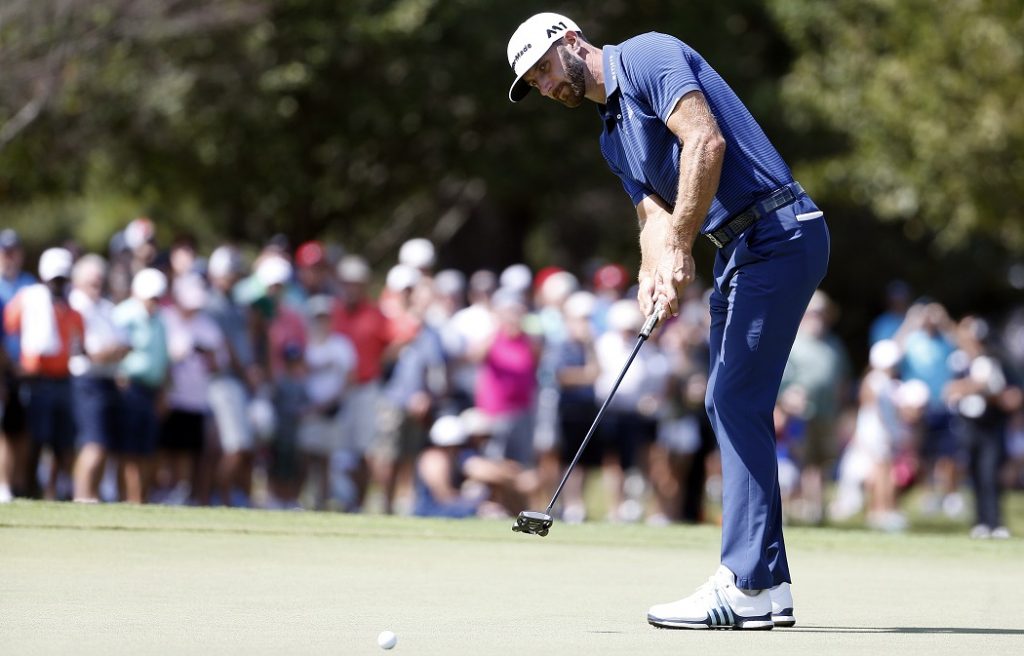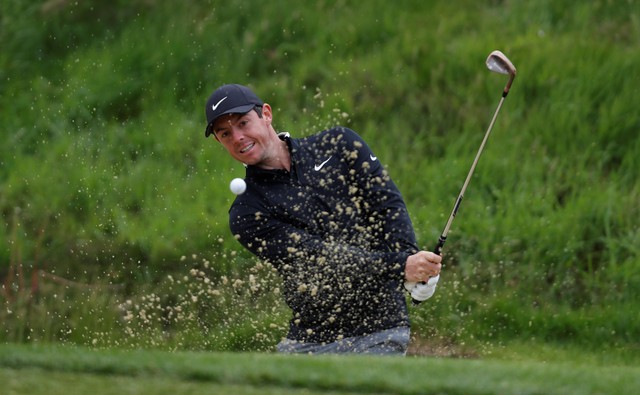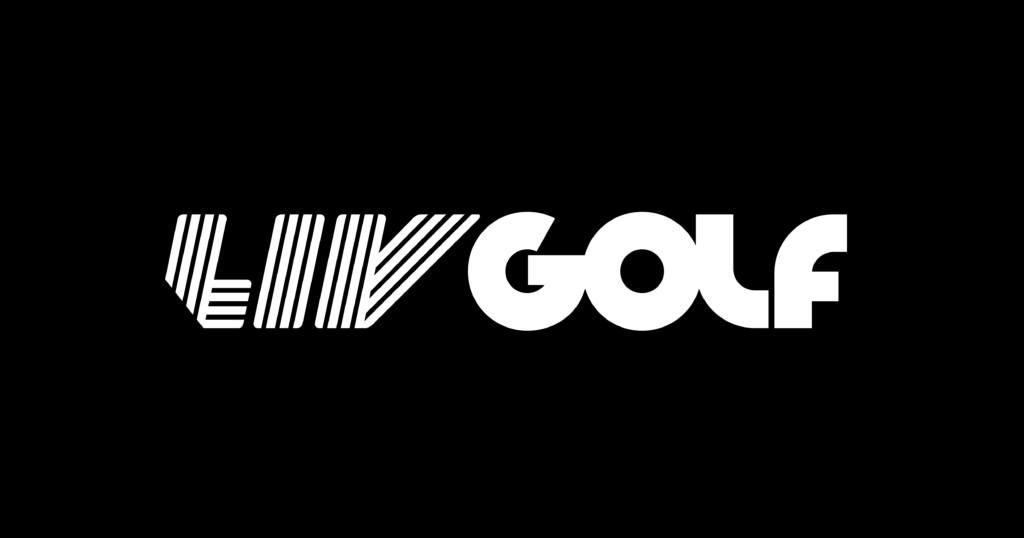LIV Golf underlines the importance of competition over spectacle
June 20, 2022
After another highly successful weekend for golf with a fantastic US Open finish, David Alexander, Founder and Managing Director of Calacus PR, believes the controversial LIV Golf Series is creating difficulties for the sport with its combative approach.
It’s not that long ago that the entire football ecosystem felt under threat after proposals from some of the continent’s biggest football clubs to form a European Super League.
The uproar from fans was comprehensive and while there are still a trio who refuse to abandon the idea completely, the passionate response from stakeholders, who had not been consulted adequately in advance, killed the concept.
So it was with some irony that some of the biggest names in golf were mooted to be joining a so-called ‘World Tour’ with details initially sketchy about the format, participants or engagement with golf’s authorities.
When the proposals gained momentum, PGA Tour commissioner Jay Monahan warned participants that they would face an instant suspension and a possible lifetime ban. European Tour chief executive, Keith Pelley, also issued a statement condemning the proposals.
“Since the launch of our strategic alliance last November, our two organisations have been working together to make global golf less fractured” – Keith Pelley.
He said: “We are aligned with the PGA Tour in opposing, in the strongest possible terms, any proposal for an alternative golf league.
“Since the launch of our strategic alliance last November, our two organisations have been working together to make global golf less fractured and not create further division, with the interests of all players and fans at the forefront of our thinking.”
But the stakes were upped when Greg Norman was announced as the event’s CEO and talk of a focus on the Asian Tour and “supporting emerging markets.”
Everything went quiet until just a few days before the inaugural event, held at the Centurion Club in Hertfordshire in early June, a venue notably unconnected to the DP World Tour (formerly the European Tour) featuring esteemed golfers such as Phil Mickelson, Dustin Johnson, Sergio García, Lee Westwood, Ian Poulter and Martin Kaymer.

Backed by Saudi Arabia’s Public Investment Fund (PIF) which recently bought Newcastle United, cynics have suggested that the events, named LIV Golf, were another case of sports washing by a state keen to improve its image, particularly with its questionable human rights record and the high profile murder of journalist and critic Jamal Khashoggi.
Why would players risk damage to their reputations and their broader golf careers for the sake of a somewhat meaningless competition whose only attraction was the appearance or prize money on offer?
Less than two weeks ago, Bryson DeChambeau dismissed claims that he was set to join, saying it was a “risk” to leave the PGA Tour and one he wasn’t prepared to make but he has now changed his mind.
“It was a business decision first and foremost and that’s all there was to it” – Bryson DeChambeau
He said: “It was a business decision first and foremost and that’s all there was to it. It’s given me a lot more opportunity outside of the game of golf and given me more time with my family and my future family. So for me, that was the decision.”
At least he was honest that money talks.
But as the event got underway, so many mis-steps underlined – once again – the need for robust communications planning to ensure that, even in the world of cynical and somewhat conservative media, the event got off to as positive a start as possible.
That Alan Shipnuck, who wrote an unauthorised biography of Mickelson which quoted the American of calling Saudi Arabia “scary mother——s,” was heavy-handedly ejected from a press conference was not a good look.
Especially when he then contacted Norman, who claimed to know nothing about it. This is despite photos later emerging of him watching from nearby, as Shipnuck later tweeted. That was the second fractious moment for the media after esteemed Associated Press journalist Rob Harris was temporarily ejected for trying to ask the difficult questions about ethics and sports washing, which LIV’s team clearly did not want to address.

Curiously, Norman refused to do interviews himself, reinforcing the ‘PR disaster’ narrative the event has attracted.
Later on, some of the top golfers who were put up for media interviews seemed unprepared and uncomfortable with questions about the morality of taking part in a Saudi-backed event, which was compared to appearing in an event for Russian President Vladimir Putin.
Norman later proclaimed that: “The evolution of the game has arrived. Golf was always going to be a force of good out of all this.” How that manifests itself is anyone’s guess.
Having hired a former George W Bush communications adviser, why had LIV Golf not briefed the players, rather than letting them face the ire of the media in much the same way as Eddie Howe, the Newcastle manager, has to tackle questions about human rights and geo politics while the PIF executives hide from media scrutiny.
No wonder the PGA Tour started suspending Saudi-signed players within minutes of the first tee shot – which LIV Golf instantly claimed was “vindictive.”
But the fact that the DP World Tour has yet to confirm its own position since the event also raises questions about whether there will be a collaborative response that puts other top golfers off leaving the tours for LIV’s riches.
“With reports of tickets being given away and with no television deal in place it relied on a live stream on YouTube”
The PGA Tour has not clarified how long its ban will last, nor is it clear what impact it will have on future US Opens, although the USGA’s chief executive, Mike Whan, said during the US Open that says LIV golfers could face ban from future tournaments.
The event was also lacking a wide audience, with reports of tickets being given away and with no television deal in place it relied on a live stream on YouTube, which barely got over 100,000 views – which is small given the names taking part and the purse being paid.
Mickelson had to defend his decision to play after advocacy group 9/11 Families United sent an open letter condemning their participation: “Do not insult our loved one’s memories and take the pathetic position, as one of your foreign colleagues did last week, claiming you are ‘just golfers playing a game’ or blandly treating the evils of the Saudi regime as ‘human rights’ concerns.
“You are all Americans, keenly aware of the death and destruction of September 11. Whether it was the appeal of millions of dollars of hard cash, or just the opportunity to prosecute your professional grievances with the PGA [Tour], you have sold us out. This is a betrayal not only of us, but of all your countrymen.”
It has been left to Tiger Woods and Rory McIlroy, who denounced the event last year over ethical concerns about the origin of its funding, to lead the criticism, a narrative that somewhat overshadowed the US Open.
McIlroy summed it all up when he said: “It’s the cloud that’s hanging over golf at the minute. We’re at a major and it’s what everyone wants to talk about. It’s on everyone’s mind “This is one of the biggest tournaments and the conversation is filled with something out of leftfield.
“These [majors] will always be the biggest tournaments in the world and no amount of money will change that and that’s a great thing.”
“Those crowds on Sunday in Canada, LIV’s never going to have that. Last week meant something. What they’re doing over there doesn’t mean anything apart from collecting a ton of money so I’m proud of the show we put on. It’s the competitive integrity – you’re up against the best.”
“One of golf’s greatest rivalries, the Ryder Cup, could also be at risk, further underlining the problems LIV Golf’s emergence has created.”
One of golf’s greatest rivalries, the Ryder Cup, could also be at risk, further underlining the problems LIV Golf’s emergence has created.
Spanish golfer Jon Rahm said: “The Ryder Cup is the biggest attraction the game has to bring new people in. I hope we don’t lose the essence and the aspect that the Ryder Cup is. That’s one of my biggest concerns.”
LIV Golf could have taken a collaborative approach, engaged in positive conversations with the DP World Tour and PGA Tour.
Rather than the misdirected trope they came out with about “growing the game”, LIV Golf was nothing more than a trolley dash for cash. It leaves the great game of golf embroiled in avoidable controversy and facing an existential crisis like never before.
If you need crisis communications or wider PR support, please contact David at Calacus PR, (https://calacus.com) or you can find him on LinkedIn (www.linkedin.com/in/davidwalexander).



